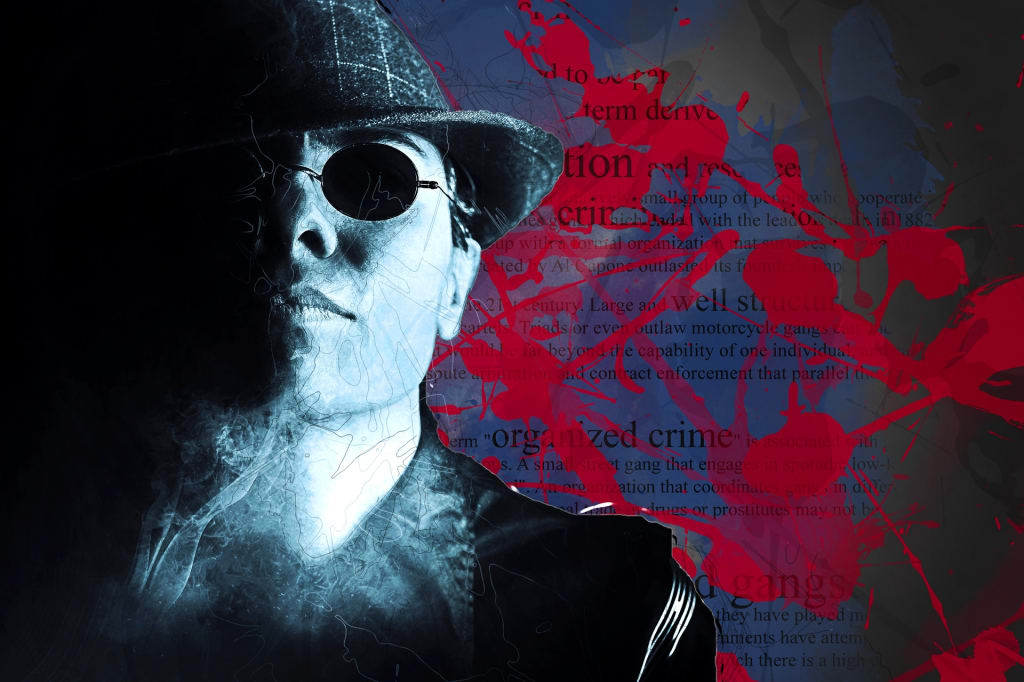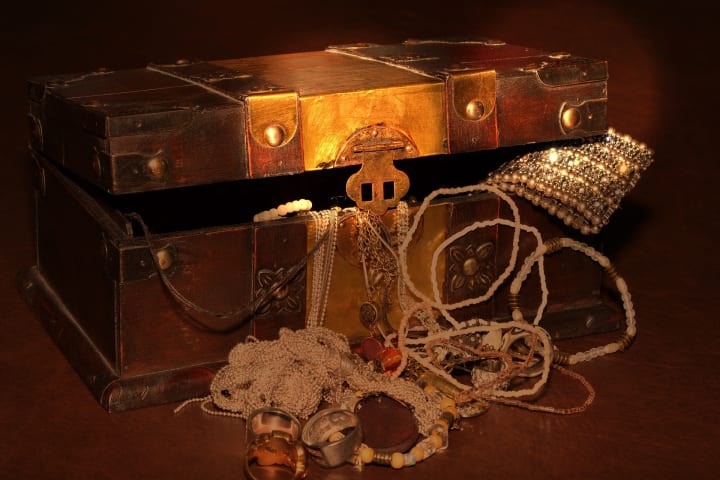The 5 Eye-Rolling Rogues You Meet in Your Gaming Career
The True Assassins of Joy

If you roll dice long enough you're going to come across examples of every character class that end up being huge red flags for any game night. And while the first installment in this series was The 5 Awful Paladins You Will Meet in Your Gaming Career, I thought it was time to address the aggravating archetypes of another class.
Because I adore rogues as a class... but there are some eye-rolling examples of them that I'm sure we've all had to deal with in the past. And if you or someone you know is worried about becoming one of the entries on this list, consider taking a look at 5 Tips For Playing Better Rogues to help get back on a positive path!
If you like this list and want to see more like it, just head over to the 5 Tips master list page on my gaming blog Improved Initiative. And if you want even more geeky gamer content, take a look at my full Vocal archive while you're here!
#1: The Marquis de Edge

A marquis, according to Your Dictionary, was an officer whose duty it was to guard/watch the frontier of a kingdom. They were, quite literally, the lord of the edge of a nation... the Marquis de Edge is a double-edged title, and we all know the rogues this applies to.
Whether we're talking about the assassin with the growling voice and eye scar who feels like an extra from a Zack Snyder film, or the gangster wearing fifty pounds of black studded leather who's always menacingly playing with a knife, you've shared a table with this character before. And if we're all honest with ourselves, the Marquis de Edge was probably the first stab most of us took at being a rogue.
The deciding factor for a Marquis de Edge, though, is whether their grimness A) fits the tone of the game you're all playing, and B) if it is the sole defining personality of their character.
Grim fantasy is its own genre, after all, and there's no shame in enjoying it. If that's the atmosphere of the game, then a character with a nihilistic outlook, extremely gray morals, and who's witnessed hundreds of everyday horrors should be right at home. That same character, however, is going to stick out like a sore thumb in a high fantasy game that's full of hope and progress, where you defeat demons with the power of friendship. And in either situation it's important to remember that being grim isn't a substitute for a personality. Grim is the accent, but your character still needs to have something to say, if you get my meaning.
#2: The Thief

Most of us know that what we currently think of as the rogue is a descendant of the older class thief from earlier editions of roleplaying games. And given that the rogue still has the capacity to disable traps, pick pockets, and sneak around in the shadows, there is still quite a lot of the older class's DNA present in its descendant.
That said, a Thief is not merely a rogue who steals things. It's a rogue that only steals things. All the time. From everyone.
A Thief is the sort of rogue who will try to shoplift goods they can easily afford, getting the whole party in trouble. They're the kind of character who wants to swipe the barkeep's strongbox from right under their nose, and whom you cannot leave on watch during the night because they'll steal the fighter's sword, the wizard's spell book, and every gold, silver, and copper coin in the camp. They're the sort of character who always tries to hide the fact they've found loot so they don't have to share, usually to the detriment of the other characters in the party.
As Malak said in Conan The Destroyer, "I know when to steal, and when not to."
Nothing says you can't be a rogue who steals things. Whether you're a burglar, a pickpocket, or someone who pulls full-on capers Ocean's 11 style, that's a useful skill set to have. But you need to know when to steal things, and you should probably steal things for the party rather than from them if you want them to keep adventuring with you.
#3: The Torturer

This archetype is not unique to the rogue, but it is the place it seems to show up the most often.
To be clear, here, we're not talking about just the idea of trying to extract information out of NPCs via pain and fear. Nor is this about a character who will use detailed bluffs and psychological tricks to try to outsmart NPCs. That can make for a fun character, and for engaging roleplaying. Even someone who makes unspecified Intimidation checks to interrogate someone behind closed doors still gets the job done without making a spectacle of the incident.
No, what truly defines a torturer is that they have only one mode, and that mode is over-the-top sadism. In fact, it probably seems to everyone else around the table that rescuing hostages, saving the village, or stopping the necromancer's undead host from wiping out the local populace is a secondary, or even tertiary concern to this character. They're far more interested in how much "fun" they can have with whoever they take prisoner along the way.
What makes this archetype of eye-rolling rogue distinct from the Marquis de Edge is that it's entirely centered around torture. Even in descriptions of battle scenes the player will go into intimate detail about how they twist their dagger in an enemy's wound, or how they pick the most painful places to strike. It can be uncomfortable to be around... but what's even worse is that it just gets boring after a while. So if someone starts clapping their hands and getting excited when it comes time to "interrogate" someone, brace yourself, and get ready to have "the talk" with your GM in the near future.
#4: The Shadow

Stealth is not a requirement for rogues, but it is something they can be particularly good at. The Shadow is not merely an expert at moving unseen, tailing targets, and reconnaissance however, because those are useful skills that will bring value to a party. In this case, The Shadow is that rogue who seems to never actually be present in a scene.
The Shadow is always off in the woods just outside the ring of firelight when camp has been set, sitting in the corner with their hood pulled up at the tavern, or just out-of-sight while a dungeon is being crawled. Despite taking pains to make sure their character is not actually in the scene and interacting with people, though, the player will often interject into ongoing RP to remind everyone that they're being very mysterious over here, should anyone need them, or be interested in what they're doing. And then if another PC comes looking for them, nine times out of ten The Shadow is going to pull a disappearing act and claim they can't be found (actively avoiding RP through the roll of a die).
That's irritating enough, but often The Shadow will carry this behavior into dangerous situations, insisting that the rest of the party not do anything that would endanger them while not communicating with anyone what their plans and movements are going to be.
A rogue capable of stealth is a great asset to have. The Shadow, on the other hand, is basically a phantom party member who tends to be a bigger hindrance than they are a help.
#5: Teh Randomz

There are few things that give a GM more pause than seeing a rogue with chaotic neutral in their alignment box, and the reason is because there's always a chance that this character is the latest incarnation of the dread being Teh Randomz.
The bane of sensical storytelling and cohesive gaming, Teh Randomz is a character who isn't just chaotic; they're pure Id given form. While a player might assign this character a backstory, and claim they have certain goals they're trying to achieve, it never seems to show up in play. As soon as the game starts, this character is off like a top, following whatever urge happens to cross their mind. They see something in a store front they want? They steal it. NPC gives them sass? Sneak attack! Somebody left a drink unattended? Poison it. Bartender wants the tab covered? Well it seems the bar's on fire now, so I guess that means drinks are free!
It should be noted that Teh Randomz always uses their energy in negative ways. At no point will they swipe a bunch of coin from a stodgy merchant and give it to a beggar on the street. They're never going to hear that someone owes a huge debt to a gang lord, and destroy said ganglord's hideout so all the records of various debts go up in smoke. They're not going to put sleeping poison on a flower, and hold it up to a guy who's harassing women so that he passes out at his table and stops bothering people. Their antics are solely destructive, help no one, and often mean they perpetrate a dozen major crimes before the party has even stopped for lunch.
Again, this is not the only class that deals with this archetype, but it is the most common among rogues for two reasons. One is because so many people think a rogue is required to be chaotic (they're not), and because the stereotype is that rogues are inherently criminals (also not required). So it acts as a kind of double layer of defense for their actions to try to escape consequences for the decisions they made, "Because I'm just playing my alignment," "I'm just playing the class," or, "That's what my character would do."
All of these quotes are huge red flags on their own, and should not be ignored under any circumstances. If they're showing up in sequence, time to remand this rogue into the custody of the authorities, collect the bounty, and be on your merry way.
About the Creator
Neal Litherland
Neal Litherland is an author, freelance blogger, and RPG designer. A regular on the Chicago convention circuit, he works in a variety of genres.
Blog: Improved Initiative and The Literary Mercenary
Reader insights
Outstanding
Excellent work. Looking forward to reading more!
Top insights
Compelling and original writing
Creative use of language & vocab
Easy to read and follow
Well-structured & engaging content
Expert insights and opinions
Arguments were carefully researched and presented
Eye opening
Niche topic & fresh perspectives
Masterful proofreading
Zero grammar & spelling mistakes
On-point and relevant
Writing reflected the title & theme






Comments
There are no comments for this story
Be the first to respond and start the conversation.